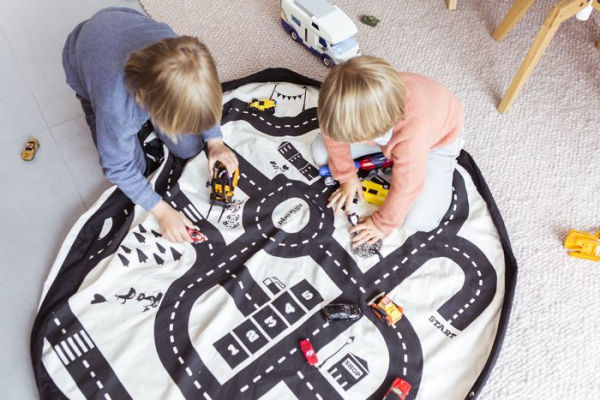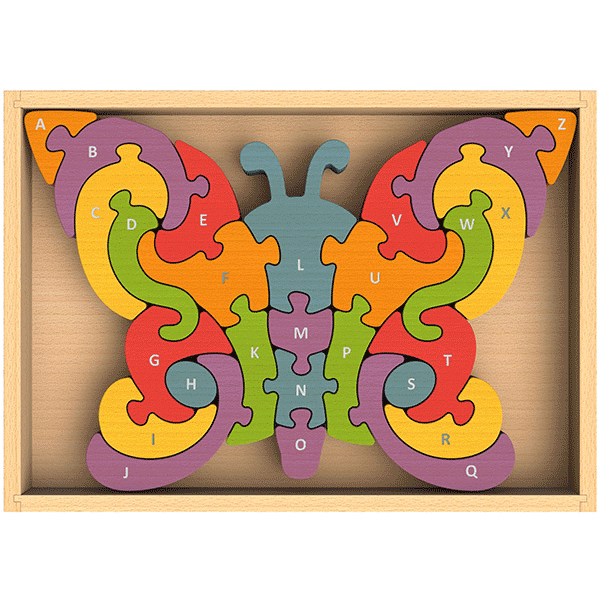
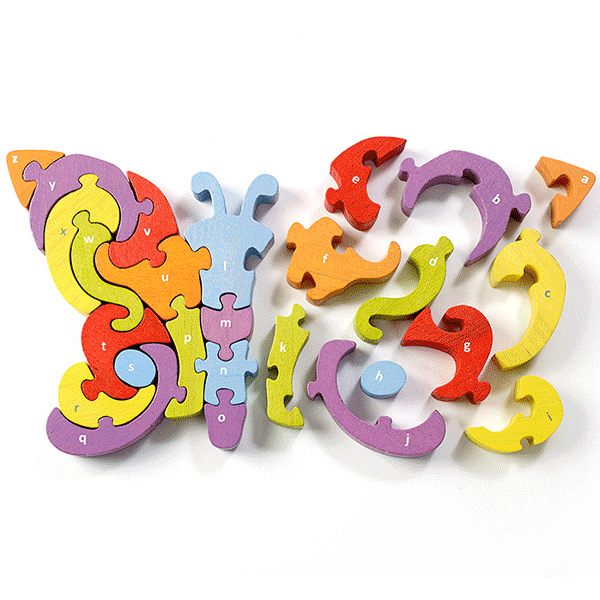
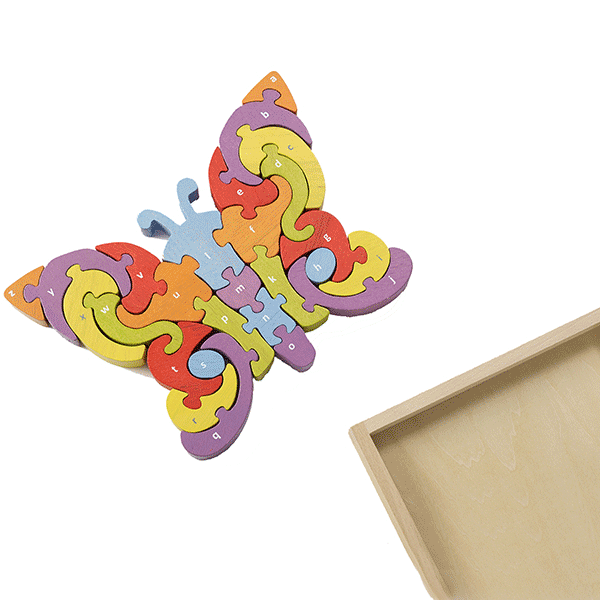
Butterfly Wooden Puzzle
Details
Little lepidopterists will positively engage with this colorful artistic wooden puzzle. As an alphabet learning toy, it displays both upper-case letters and lower-case letters. It's a blend of early reading skill-building and logic problem-solving practice. As a child learns the alphabetical order, the puzzle becomes easier.
Cut in a traditional jigsaw puzzle fashion; the wooden puzzle pieces are about an inch thick making easy work for little hands. The puzzle comes with a beautiful tray in natural beech wood, creating a controlled workspace, supporting homeschool or travel. The tray flips over and functions as a stand.
Eco-Friendly Manufacturing
Size: 11" x 8" x 1"
Age Range: 4-7 years

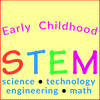
Developmental Value
Early reading skills begin with recognizing alphabet letters. Exposure to both upper and lower-case letters will create awareness. Over time, children will become aware of the alphabet order. Adults can guide learning by offering the alphabet sounds. Later, adults can use the pieces to spell out simple words 'c-a-t' or 'b-a-t'.
Puzzles are a problem-solving activity developing cross-brain thinking skills. Effective problem solving requires a mixture of both logic (left-brain activity) and creative (right-brain activity) thinking. Good problem solvers switch from one set of skills to the other. Cross-brain thinking is not always easy but becomes easier with problem-solving practice.
-
Logic (analytic) thinking develops through ordering the pieces, comparing them, contrasting them, evaluating them and selecting the correct piece. The child must select the best alternative from the options available by narrowing down the range of possibilities.
-
Creative thinking is developed when a piece doesn't fit because the child must consider a broader set of solving options such as manipulating the piece, flipping the piece, considering the alphabet order, or solving surrounding pieces.
Puzzle play requires visual spatial relationship reasoning, a problem-solving skill relating to adjoining piece relationships. Spatial awareness is critical to fundamental mathematics comprehension.
Puzzles build attention span. They require concentration for completion. The key for the adult is finding the sweet spot of difficulty. If a puzzle is too easy, it requires little concentration. If it is too hard, the puzzle becomes a source of frustration. If it doesn't feel like play, the positive learning experience shuts down.
Puzzles become an opportunity for relationship building when adults provide encouragement and support.
3 and 4 year-olds can start with this puzzle by sorting the pieces into colors, learning the alphabet as they go.
The puzzle parts are large and chunky supporting the fine motor skill development found in clutching and manipulating of pieces.
As a completed puzzle, the rigid dinosaur becomes a toy for imagination and storytelling.
Because there is a carrying tray, this puzzle becomes a travel toy for activities away from home. For homes who focus on Montessori shelving with work options, this puzzle sits orderly in its box.
Manufacturer
Located in Fort Collins, Colorado, BeginAgain believes in hands-on experiential toys, devoid of batteries. BeginAgain also has a strong commitment to eco-friendly products. Their entire line of products is made from plant-based materials. Any plastic, such as packaging, is 100% recycled. This durable wooden puzzle is handcrafted from sustainable plantation-grown rubberwood trees. BeginAgain chooses to use rubberwood (hevea brasiliensis) because it grows quickly. As it is a strong, sustainably grown hardwood, it is an excellent material for making heirloom quality toys.
The puzzle was designed in Fort Collins, Colorado. Manufactured near the native source of the wood, allows for smarter, more efficient use of energy, reducing the shipping footprint. The puzzles are packaged back in the USA, ensuring quality control. The manufacturing partner is female owned, and family run. The factory believes in the principles of fair living wages and sustainable practices. Independent audits ensure fair working conditions, product safety, and quality control standards.


